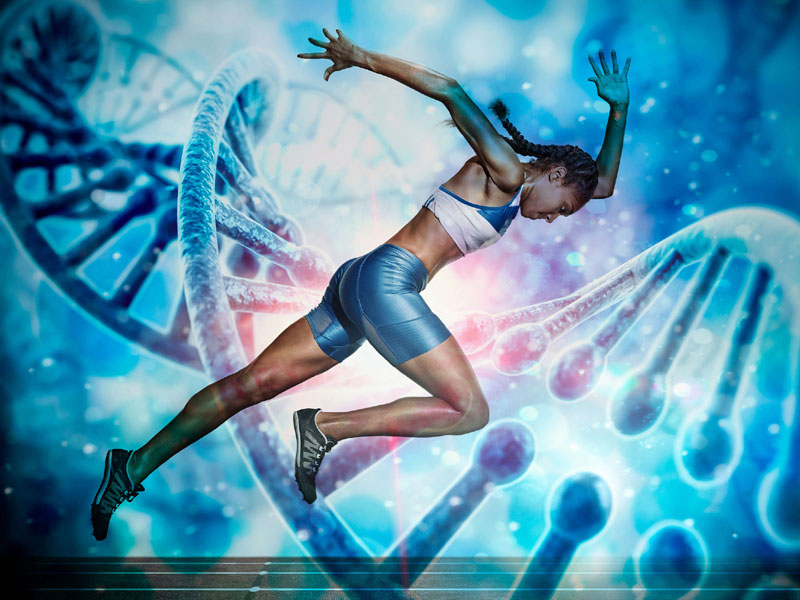People in sports and fitness still debate the age-old question: Are athletes born that way or can they be made? Important as discipline and regular practice are, science points out that being an athlete starts with a good genetic base. Likewise, practising certain sports regularly can gradually change how your genes are expressed in your body. Knowing about this link helps people choose workouts that are both natural for their bodies and reflect their own goals.
- Genetic Blueprint: Roles Genes Play in Physical Abilities
Genetics affects many factors that play a role in performing well physically. These include:
- Whether muscle fibers are fast-twitch or slow-twitch
- Maximum oxygen consumption
- Lactate threshold
- Flexibility
- Which type your body is, also matters: endomorph, ectomorph, or mesomorph
- Bending at the joints and the length of your limbs
- How fast you recover and the chances you have of being injured
Example: Individuals who have mostly fast-twitch fibers do well with sports like sprinting or weightlifting, as one can visit Muay Thai Koh Phangan or some other places to get introduced to these sports. However, athletes with many slow-twitch fibers usually succeed in sports such as long-distance running or cycling.
- The Influence of Specific Genes in Sport Performance
Genetic testing in the present day has located certain gene variants that are important for performance.
- The ACTN3 gene is referred to as the “sprinter gene” because it improves muscle movement in people who sprint. Those born with the R allele will often succeed in power sports.
- The presence of the I allele associated with the ACE gene improves someone’s performance in sports that last a long time.
Even though these genes don’t ensure victory, they indicate which sports a person may naturally excel at.
- How Sport Selection Can Influence Gene Expression
What makes this discussion interesting is epigenetics, which focuses on how genes are affected by behavior and the environment. You can’t change what’s in your DNA, though sporting activities can affect how your genes function. For example:
- Those who work out for long periods can see their mitochondria work more efficiently, which improves aerobic fitness.
- Doing resistance exercises can turn on pathways in the body that usually lie dormant among people with normal muscle-building genes.
Genes that help with your chosen sport can be activated and strengthened, giving your body more than it can normally do based on its genes.
- The Importance of Understanding Body Type in Sports
A person’s physical features, influenced by their genes, matter a lot for choosing sports.
- Someone with an ectomorph physical type is often best at long-distance events, basketball or cycling sports.
- People described as mesomorphs handle sports like MMA and football, or CrossFit, thanks to their natural muscularity.
- Endomorphs (huskier and sturdier): May feel at ease with strength types of sports such as powerlifting or wrestling.
Even if these are common beliefs, training often changes or improves a physique with time. A person who visits the Muay Thai gym at Koh Phangan can feel the change in their body when they remain exposed to physical training for a long time.








